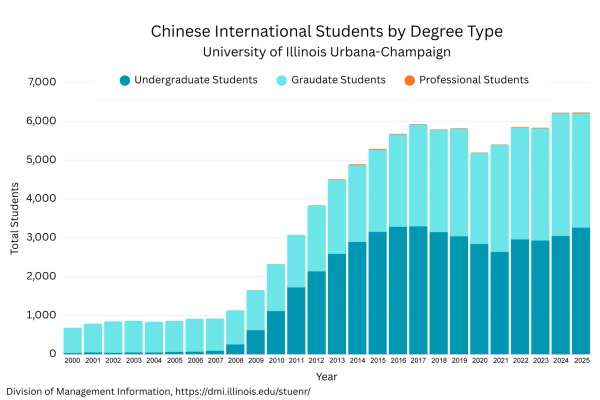Gov. Rauner’s cuts, Mahomet Aquifer focus of lawmakers’ town hall meeting
Mar 14, 2015
Last updated on May 10, 2016 at 08:24 p.m.
Rep. Carol Ammons, D-103, is not a fan of Gov. Bruce Rauner’s vision for the future of Illinois.
“I would never run a business the way he is running the state,” she said at a town hall meeting Friday evening.
Her disdain toward the governor and his budget was echoed by members of the community, as they gathered in the Urbana City Council Chambers for a joint town hall meeting with Ammons and State Sen. Scott Bennett, D-52.
Ammons and Bennett debriefed constituents on their first 60 days in office, listing bills they have sponsored, their legislative goals and discussing the political climate in Springfield in the wake of Rauner’s budget address.
Get The Daily Illini in your inbox!
The legislators also took public comments from citizens, hoping to better represent their interests in the General Assembly.
“I didn’t go to Springfield to be an obstructionist, but I have to fight for my constituents,” Bennett said, reassuring attendees that he is doing what he can to push back against Rauner’s proposed cuts.
Reaction to University cuts
Rauner’s proposal to cut the state funding the University receives by $209 million was another major focus of the evening. Student Body President Mitch Dickey and newly elected Student Trustee Jaylin McClinton attended Friday’s town hall, and spoke on the potential harm.
“When this happened in Wisconsin, those schools became whiter and they became richer,” Dickey said.
Bennett showed support for Dickey and McClinton’s stance, and voiced his own concernon the effects they could have on the student body and cost of tuition.
“What business, what university can exist with a third less of the funding,” Bennett said. “There’s a point where you can’t call a public university a public university with a straight face.”
Ammons also discussed the possibility of the higher education cuts leading to higher tuition rates as well as their potential to reduce campus diversity.
“You cannot turn this University into a private university,” Ammons said. “Students from Champaign and Urbana will not be able to go to this University, and we know students of color will not be able to go to this University.”
Citizens speak out against cuts to services, applaud Aquifer decision
Many of the town hall’s participants raised concerns to cuts in health and human services and child care as a result of Rauner’s budget proposal. Ammons and Bennett addressed these concerns, along with stating their support for increased support vocational training and continued effort to protect the Mahomet Aquifer.
Bruce Suardini, CEO of The Prairie Center for substance abuse treatment, said if implemented, Rauner’s cuts could cripple his organization and cause serious problems for the community.
“We will reduce our budget by another $400,000,” Suardini said. “As you begin to erode the safety net of the community, the jail picks up the cost.”
Several people spoke out about potential cuts to child care, fearing that more toddlers will be left home alone as a result of unaffordable day care.
Ammons said she would be meeting with the governor to discuss the issue. Rauner, she said, has enough discretionary funding to prevent the cuts to child care and she hopes to convince him to use it.
Ammons, Bennett and much of the audience applauded the Environmental Protection Agency’s recent decision to designate the Mahomet Aquifer as a sole source aquifer after years of litigation by proponents of the measure.
Bennett expressed his excitement over the designation as well as his congratulations to members of the audience, who he said “had been waiting a long time for action.” Progress on passing additional protections for the aquifer has been so slow, Bennett said, that even President Barack Obama had written a letter to the EPA on the matter when he was still serving as a U.S. senator.
@jw_daily_illini
Editor’s note: A previous version of this article incorrectly stated that President Barack Obama was a state senator. The article should have stated that he was a U.S. senator. The Daily Illini regrets the error.





